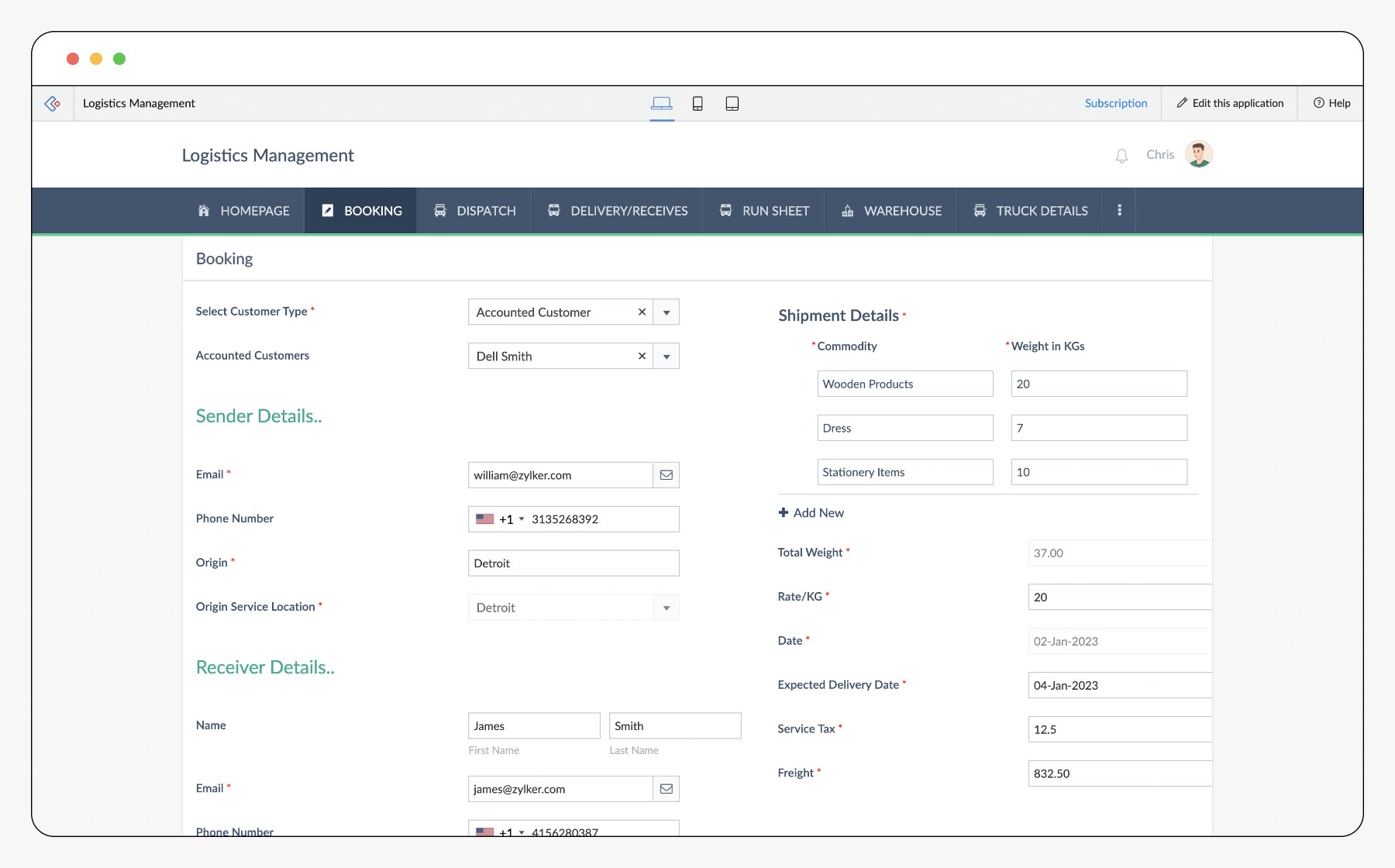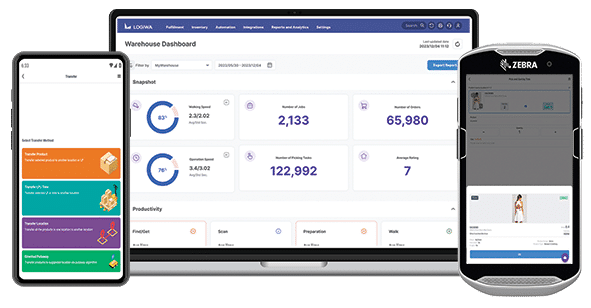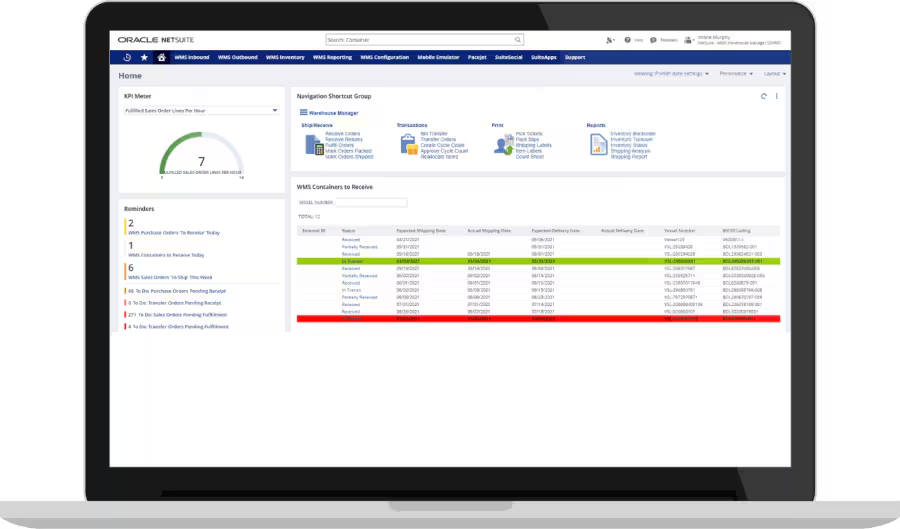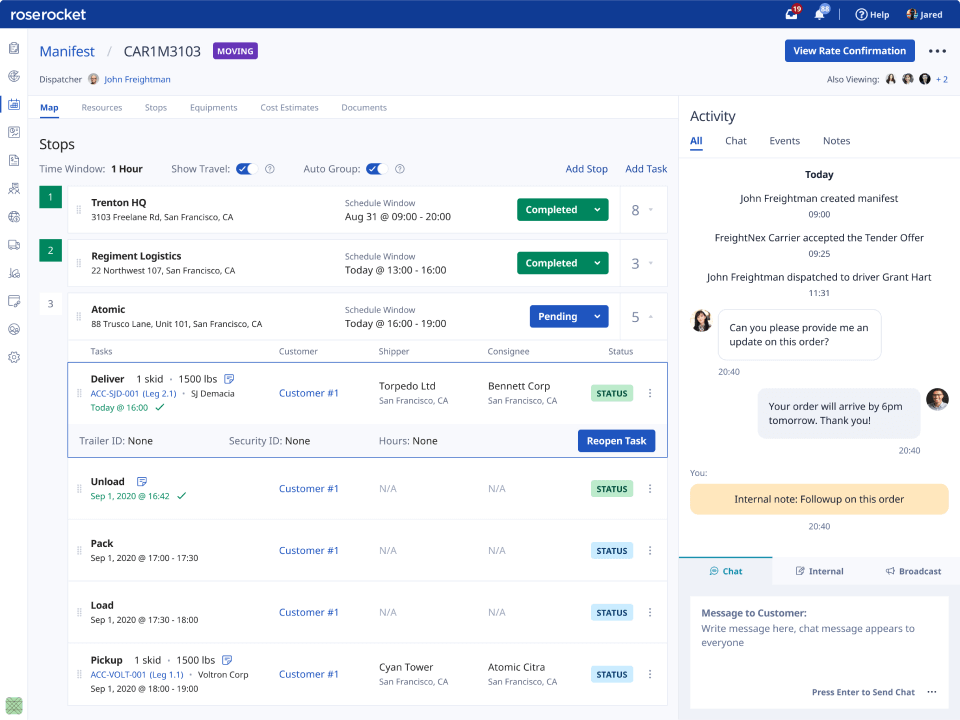According to recent industry data, companies using advanced logistic management software solutions have seen an improvement in delivery efficiency by up to 30%, highlighting the critical role these tools play in streamlining operations.
As we navigate 2024, the importance of choosing the right software has never been more apparent. In this article, we explore the top 10 logistics management software solutions that are making waves in the industry, offering robust features that help businesses optimize their supply chain and delivery systems.
Whether you are a small business owner or manage a large enterprise, finding the right software can significantly enhance your operational efficiency. Let’s explore the best options available this year, making your logistics smoother and more responsive.
Table of Content:
Table of Content
What is Logistic Management Software?
Logistic Management Software (LMS) is a type of technology designed to help businesses manage and optimize the way they move goods from point A to point B. Essentially, it acts as the brain behind the scenes, coordinating everything from inventory and warehousing to transportation and delivery. By automating these processes, LMS enables companies to plan more effectively, reduce costs, and deliver products to customers faster and more reliably.
This software integrates various functions such as order management, warehouse management, transportation management, and inventory tracking into a single system. This integration ensures that every part of the supply chain is connected, providing real-time data and insights that help businesses make better decisions. Whether it’s finding the quickest delivery routes or adjusting inventory levels to meet customer demand, logistic management software simplifies complex processes, making them more manageable and less prone to error.
10 Best Logistics Management Software in 2024
To find the suitable LMS for your business, you need to consider important factors that may affect the operation: features, benefits, and reputation. So, below are the recommendation of the best logistics management software in Singapore.
1. HashMicro
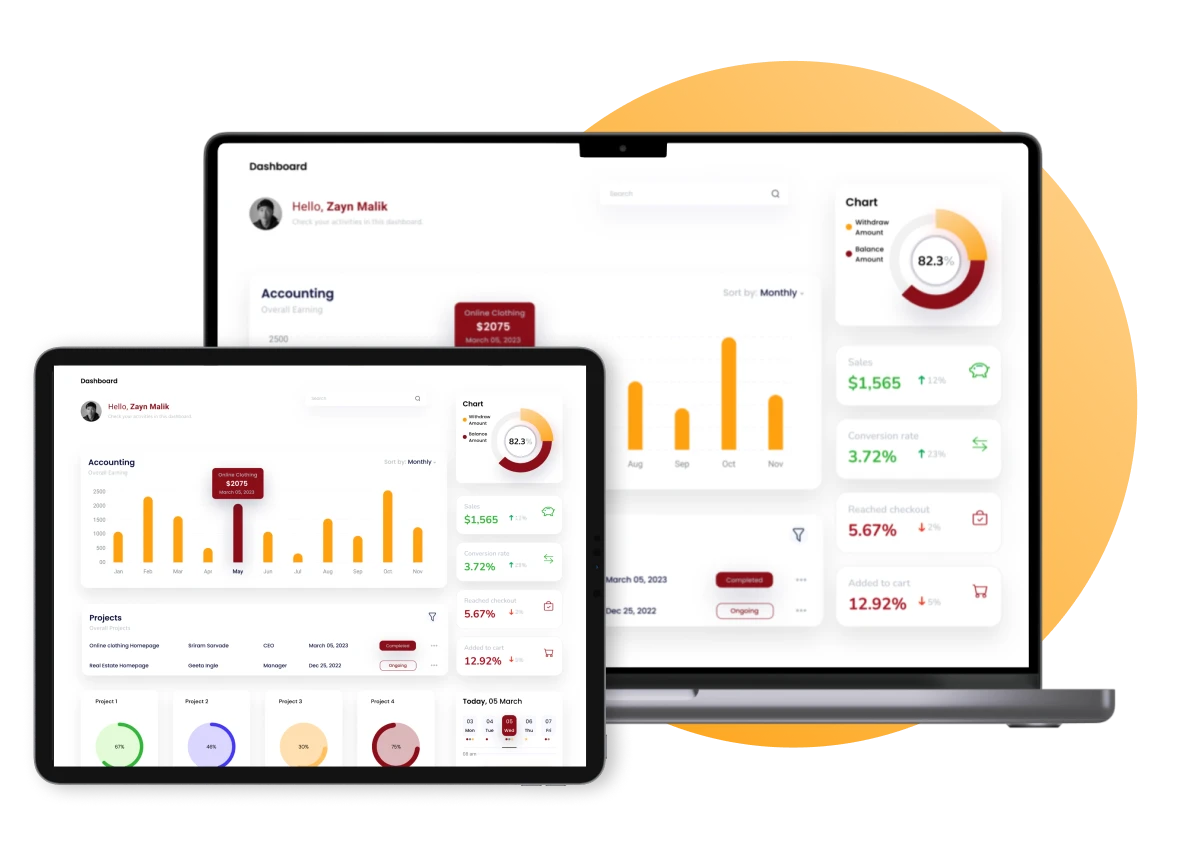
HashMicro is a trusted LMS provider in Singapore. With more than 1750 clients, HashMicro strives to provide the best software for large scale business. It has a robust logistics management software designed to optimize the flow of goods from warehouses to customers, ensuring efficiency and high customer satisfaction.
Below is an overview of HashMicro logistics management software key features and functionalities:
- Real-time Update: HashMicro enhances communication by offering a real-time platform where updates on delivery status are instantly available. This transparency boosts customer satisfaction as they remain informed about the whereabouts of their goods at all times.
- Effective Vehicle Scheduling: The software automates the process of vehicle assignment for deliveries, ensuring that the most suitable transportation option is used for each delivery, optimizing costs and timing.
- Controlled Fuel: By integrating real-time odometer updates, HashMicro provides precise control over fuel usage in each vehicle. This helps in managing costs effectively and ensuring that fuel consumption is always in check.
- Efficient Delivery: The system enables real-time tracking of lorry receipts, vehicle types, and transporters. This information can be accessed anytime and anywhere, streamlining the delivery process.
Additionally, HashMicro includes several specific features designed to enhance various aspects of logistics management:
- Fleet Management: Allowed to track vehicles and the distance they travel using GPS and odometer data, the fleet management system simplifies the analysis of shipment durations and helps in better fleet utilization.
- Travel Management: HashMicro consolidates all travel records into a single repository. This centralization makes it easier to view all travel activities and determine the most effective routes for transport.
- Fuel Management: Integrated with Internet of Things (IoT) technologies, this function tracks fuel transactions and consumption, providing detailed insights that help in controlling and reducing fuel expenses.
- Cargo Management: The software ensures that cargo tracking is seamless, providing updates on the delivery schedule, the specific cargo being transported, and the personnel responsible for each shipment.
- In-Depth Report Generation: HashMicro offers comprehensive reporting capabilities that include custom reports complete with various diagrams. These reports deliver deep insights into operational performance, aiding in strategic decision-making and continual improvement.
Overall, HashMicro stands out for its ability to integrate critical logistics management functions into a single, efficient system that simplifies the complexities of logistics operations. If you’re interested on applying HashMicro LMS, you can download the price scheme below.
2. Brightpearl
Brightpearl is a dynamic logistics management software trusted by over 5,000 brands, offering a liberating approach to managing the various facets of retail and wholesale businesses. The software stands out for its seamless integration capabilities with accounting systems, payment processors, and warehouse management systems, making it a highly flexible and adaptable choice for businesses of all sizes.
Whether you’re operating a small eCommerce platform, a direct-to-consumer venture, or a multi-channel retail operation, Brightpearl tailors its features to meet specific business needs, significantly enhancing operational efficiency.
3. Zoho Inventory
Zoho Inventory offers a cloud-based inventory management solution tailored for retailers who operate across multiple sales platforms. What distinguishes it from solutions like Brightpearl is its transparent pricing structure, which many users find to be more straightforward and user-friendly. The software is designed to automatically update inventory in real time, no matter where a sale is made, ensuring accurate stock levels across all channels.
Despite its strengths, Zoho Inventory does have some limitations. It lacks dynamic route optimization capabilities, which can be a critical feature for businesses looking to streamline their delivery and distribution processes. For those needing advanced routing solutions, software like Upper or Rose Rocket might be more appropriate.
Moreover, the reporting functions in Zoho Inventory, while adequate for basic needs, do not match the robustness or depth offered by some other inventory management systems, which might be a drawback for businesses that require detailed and complex reporting capabilities.
4. Sorty
Unique among its competitors, Sortly offers an exclusive free version, providing an accessible entry point for small businesses or individuals who may be budget-conscious. This is a notable advantage over systems like Fishbowl or Zoho Inventory, which do not offer a free version.
Despite these strengths, Sortly does have some drawbacks. The software does not provide easily accessible self-help manuals, which can pose a challenge for new users who are trying to learn how to use the platform effectively.
Furthermore, users have experienced technical issues such as slow page reloads and difficulties when opening product pages in new tabs, which can interrupt the workflow and reduce efficiency. These issues highlight areas where Sortly could improve to enhance user experience and satisfaction.
5. Fishbowl
The unique selling point (USP) of Fishbowl is its remarkable integration capabilities. The software can seamlessly connect with various logistics systems, significantly enhancing supply chain efficiency. Users will appreciate the array of shortcuts Fishbowl offers, which simplify the execution of diverse tasks, thereby saving time and reducing the learning curve.
Despite these strengths, Fishbowl does have some limitations. Testing revealed that the material resource planning (MRP) algorithm does not perform as well as some might expect, which could be a drawback for companies that rely heavily on precise material planning.
Additionally, unlike other software solutions like Upper, Fishbowl lacks real-time delivery tracking and estimated time of arrival (ETA) features, which are crucial for businesses that need to provide customers with timely and accurate delivery updates. These gaps indicate areas where Fishbowl could further develop to meet the evolving needs of its users.
6. ExCalibur
ExCalibur WMS is a robust warehouse management software tailored for third-party logistics companies. It is engineered to enhance the management of receiving, shipping, inventory optimization, and billing, making it a prime choice for businesses aiming to streamline logistics operations, cut costs, and boost service efficiency.
Users have found the implementation process somewhat tedious, a sentiment echoed by internal testing. The training materials provided are considered outdated, which could hinder the smooth onboarding of new users or the upskilling of existing staff. Furthermore, a significant drawback is the absence of a tax settlement feature, which is crucial for handling financial aspects of logistics operations accurately. Addressing these issues could further enhance the effectiveness and user-friendliness of ExCalibur WMS.
7. Logiwa
A standout feature of Logiwa is its smart shipment box suggestion tool, which has proven invaluable for users managing multiple orders. For example, when fulfilling ten different orders, users have historically struggled with selecting the optimal box size for each shipment.
However, Logiwa does have its shortcomings. During testing, issues were encountered when attempting to search for items on the Control page using the Channel ID, indicating a need for improvement in search functionality. Additionally, when it came to clearing existing locations for inventory replenishment, the process was inefficient. Users were required to manually delete associated items from each location one by one, a task that proved to be both time-consuming and tedious.
8. NetSuite
NetSuite’s most significant advantage is its all-in-one cloud-based nature, which significantly reduces IT overhead and maintenance costs for businesses. This aspect is particularly beneficial for companies looking to streamline their operations without the additional burden of managing complex IT infrastructure.
Despite these strengths, NetSuite is not without its flaws. Performance issues have been noted, particularly the system becoming sluggish, which can hinder basic operations such as opening customer records for viewing or editing. Additionally, compared to other software in the same category, NetSuite’s user interface appears somewhat outdated and cluttered.
This can make navigation and usability challenging for new or even experienced users, potentially affecting productivity. These areas present opportunities for improvement to elevate the user experience to match the software’s robust functional offerings.
9. Rose Rocket
Rose Rocket enhances customer service by providing real-time location updates via GPS tracking, allowing customers to stay informed about their shipments’ whereabouts. This transparency is a key factor in customer satisfaction and trust. Additionally, Rose Rocket offers a feature that sets it apart from many others on the list: proof of delivery
However, Rose Rocket does face some challenges. The real-time updates, although valuable, can sometimes be slow, as both internal testing and user feedback have indicated. This delay can impact the effectiveness of the real-time tracking feature. Furthermore, while the software allows for some customization in reporting, users have found the options limited due to excessive filters.
10. ReturnLogic
ReturnLogic is a specialized logistics software crafted to streamline and optimize the returns process for businesses. It’s designed to automate the entire lifecycle of a return, from the moment a customer initiates it to the point they receive a refund or replacement. This focus on returns management makes ReturnLogic an ideal choice for companies looking to enhance customer satisfaction and efficiency in handling returns.
However, ReturnLogic lacks return route optimization, which can be a crucial feature for logistics efficiency, particularly in reducing costs and time associated with the reverse logistics chain.
Conclusion
In the increasingly complex world of global commerce, the role of logistics management software (LMS) cannot be overstated. Effective logistics management is crucial for businesses aiming to streamline their operations, enhance efficiency, and ensure customer satisfaction. The right LMS empowers companies to manage and synchronize their inventory, shipping, and delivery processes more efficiently than ever before. This not only leads to cost savings but also improves service delivery, making a direct impact on the bottom line and customer retention.
Choosing the best LMS is a strategic decision that affects almost every facet of a business’s operations. It’s about finding a solution that offers real-time updates, effective vehicle scheduling, controlled fuel consumption, and efficient delivery management—features that are essential for staying competitive in today’s fast-paced market.
In this context, HashMicro logistics management software emerges as a standout choice. With its robust features that cater to diverse logistics needs, HashMicro is designed to enhance operational efficiency and adapt seamlessly to the unique demands of your business. Try the free demo now!








